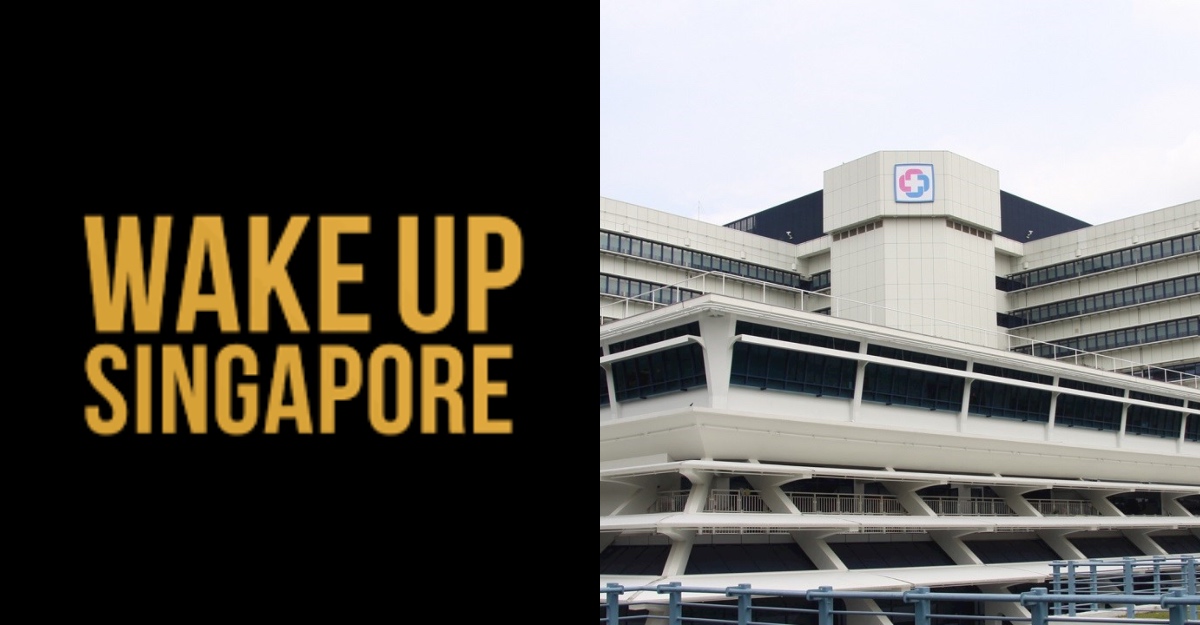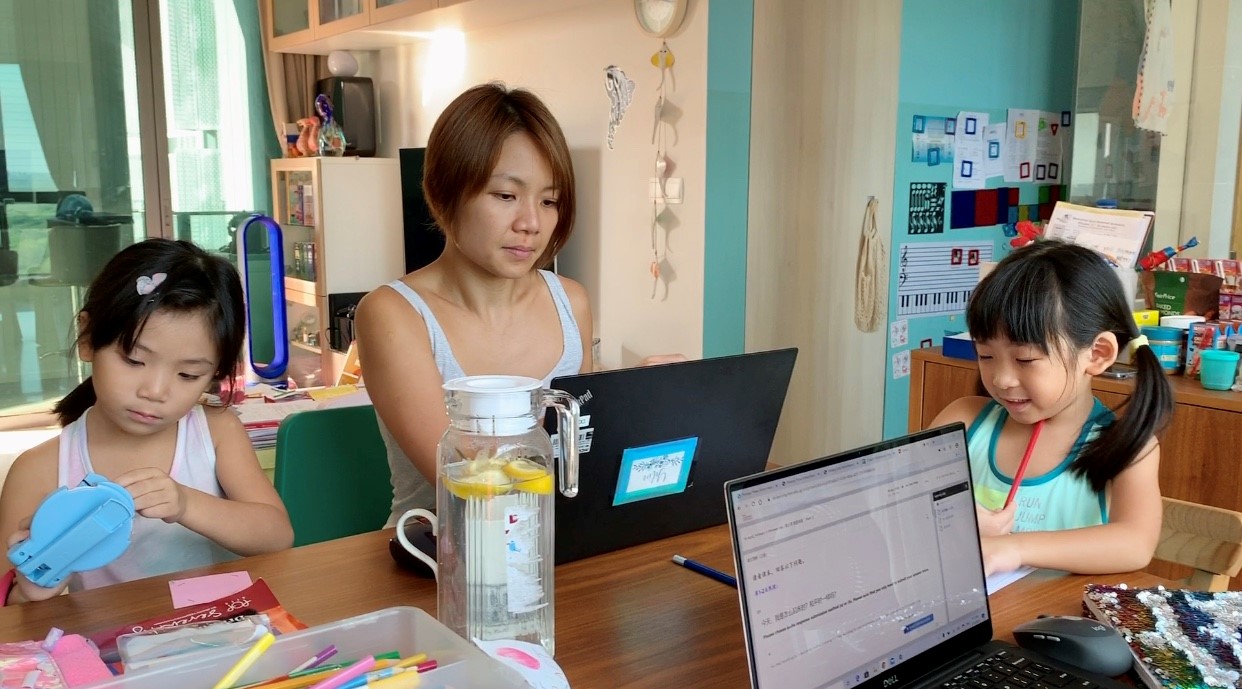In President Halimah Yacob’s 14th Parliament address on 24 August, she said that job competition from work pass holders could become a divisive issue and needs to be addressed.
Following this statement, Minister for Manpower (MOM) Josephine Teo announced that the government will raise the salary criteria for Employment Passes (EPs) and S Passes.
From 1 September 2020, firms applying for new EPs for foreign workers will need to pay them a monthly salary of at least S$4,500, up from the current S$3,900.
Meanwhile, new EP holders in the financial services sector will need to be paid at least S$5,000 from 1 December — this is the first time MOM has announced a sector-specific higher qualifying salary.
For mid-skilled foreigners on S Passes, the qualifying salary will be raised from $2,400 to $2,500, starting from 1 October for new applicants.

This move angered some Singaporeans, who feels that locals are getting the short end of the stick.
Some common sentiments among netizens are that locals are getting pay cuts amid COVID-19 while foreign workers are getting a pay increment, and that foreign workers are stealing our jobs.


What about employers who bear the brunt? They are the ones who have to pay foreign professionals and mid-skilled workers higher salaries, so what do they think about the government’s move?
We asked five employers in Singapore from different industries on their thoughts on this.
Some Firms See “Little To No Impact”
According to homegrown jeweller JannPaul, they currently hire four foreign workers, of which two are EP and S-Pass holders respectively.
CEO Paul Hung said that the foreign workers they hire are specially skilled for the job, whom they usually can’t get locally. For instance, master craftsmanship is not something that people typically pursue in Singapore.
“There are certain skillsets that specific countries are more well-known for, such as mechanical engineering in Germany, or in our case, fine craftsmanship from Japan,” he explained.
As such, when they hire, JannPaul makes it a point to find the “right talent”; it’s not a matter of finding the cheaper candidate.
When it comes to skillsets, JannPaul trains their employees in a top-down approach, where even the CEO is involved in the training.
We run a very different business model to begin with. We are not a typical brick-and-mortar retail store (and) spend hours educating our clients. The reason we are able to educate our client well is because we have always been upskilling (all) our workers.
By diversifying (their job scopes) and upskilling them, we are able to pay (our foreign workers) higher wages like our locals, (so they) take more pride in their work. … Whether the salary criteria is raised or not, it does not matter. We (already) pay our local and foreign workers significantly over the minimum rate as it is.
– Paul Hung, CEO of JannPaul
Local solar energy firm Sunseap sits on the same wavelength. 10 per cent of its 56-strong workforce in Singapore are EP and S-Pass holders.
However, since their foreign employees are all paid above the mandated wage criteria, this new criteria has “very little to no impact” to the company, said its spokesperson.
For fintech startup YouTrip, the raised salary criteria is unique to them as the minimum qualifying salary is higher for EPs in the financial services sector.
However, CEO Caecilia Chu feels that this does not pose any significant impact to her company as they have always prioritised the hiring of Singaporeans.
In fact, over 90 per cent of YouTrip’s office in Singapore comprise of local employees.
“Our experience with hiring local talents in the finance and technology sector has been a positive one, and we’re confident of attracting the right talents for YouTrip with a fair compensation policy in place,” she said.
But It’s “Fair And Necessary” To Incentivise Hiring Of Locals
Jacky Yap, managing director of GRVTY Media, said that he fully understands the intention behind the raised salary criteria, especially since Singapore is currently facing high unemployment rates.
“However, I think the salary increment for EPs is too drastic and should have been implemented in more stages,” he said.
“As much as we try to hire Singaporeans, there may be times when a foreign talent fits and checks all the boxes we are looking for at that point of time. With the criteria raised now, it may be harder to get these foreign talent now.”
It’s worth noting that this is the second salary increment this year — the government raised the EP entry floor from $3,600 to $3,900 in May, with a further tightening to $4,500 and a higher floor of $5,000 for the financial services sector announced last week.
On the other hand, Caecilia finds the raised salary criteria to be a “fair and necessary measure” to support local employment amid the retrenchment caused by COVID-19 across many industries.
It’s an incentive for businesses to prioritise the hiring of mid-career or fresh-graduate level Singaporeans, with businesses still being able to attract foreign talent of a higher calibre.
But due care should also be put in place to ensure that we uphold workplace diversity in terms of skills and cultural background, which we believe will uplift the quality of the Singapore workforce in the long run. We’re future-proofing ourselves for a post-COVID-19 recovery and to ensure Singapore remains competitive for international business.
– Caecilia Chu, co-founder and CEO of YouTrip
Chiming in on the importance of a diverse workforce, the Sunseap spokesperson said that while he understands that this move is aimed at encouraging employers to hire locals, he stressed that it’s imperative for us to not neglect the foreign employees who have also contributed significantly to our economy.
“(They’ve taken on) jobs which our locals may not want to take on. Hence, the announcement could be more sensitive to our foreign employees as well,” he added.
Does It Nip The Problem In The Bud Though?
Goh Chee Cheng, founder of homegrown bubble tea brand Yuan Cha holds a contrasting viewpoint from the other employers.
He does not see the rationale behind the government’s move, and feels that the “government should spend more effort to solve the real problem, (rather than) just implement new rules.”
He said that MOM needs to identify different areas to better deal with the influx of foreign workers in Singapore instead of “(taking) an easy way out just by raising salary criteria”.
The government should spend more effort (to) understand the different sectors’ issues of hiring. For example, if the health and construction industries have a real issue of hiring locals, … then (these) sectors should have a different criteria.
As for F&B, many restaurant owners don’t hire locals as Singaporeans do not want to work long hours and (are not keen) in the service industry. They have no choice but to hire EP and S-Pass holders to fill the (manpower) gap.
– Goh Chee Cheng, founder of Yuan Cha
In all, the government should study every industry to understand their respective hiring woes.
For companies that want to hire EP and S-Pass holders, he feels that the government should find out why they need this group of people, and understand why Singaporeans are not taking up the job.
“Our government chose the easiest way — just increase minimum pay for quota and increase the salary limit, (but) this can never solve our manpower problem.”
“They have been using this method for decades, (but) there must be a balanced and better way to handle this,” he quipped.
Timeline Leaves Much To Be Desired
Although the five employers have contrasting opinions on this new salary criteria, they all agree on one thing: MOM should have given businesses enough time to adapt and adjust.
The current timeline set out by the government is as early as 1 September 2020 for new EP applications.
One month is not enough for employers to react and get ready, especially with the current challenging economic situation due to COVID-19.
Some employers may not have sufficient financial resources to hire EP holders, who may be qualified for jobs which Singaporeans may not want or (are) qualified to take on despite rising retrenchment, causing a potential negative impact on the business for employers.
– Spokesperson from Sunseap
Take Mustafa Centre as an example. Its managing director Mustaq Ahmad recently shared in an open letter to employees that their “business has been affected badly” by COVID-19.
Retail is one of the hardest-hit sectors as footfall decline, but the business also took a huge hit when they were forced to close for a month as the 24-hour mall was identified as a COVID-19 cluster in April.
They now have to “reduce (their) payroll costs” and are unable to renew the work passes of its foreign workers.
The Sunseap spokesperson also felt that employers should be given at least 12 months’ notice before implementation so they can have sufficient time to prepare and adapt.
With more time given, such announcement would not result in “potentially substantial damage control” from employers having to reassure existing employees who are EP and S-Pass holders.
“(Employers also won’t have) to scramble at the last minute to decide on alternative hires for job roles which may be critical to their businesses. If employers are unable to (find) alternative hires, (it) may negatively hinder their business. Such outcome may result in even higher retrenchment, which defeats the purpose of the raised salary criteria implementation.”
Jacky echoes his sentiments — “hiring is a long process and you usually need at least two to four weeks for any successful hire.”
For Caecilia, while the timeline may seem short, she sees it as a “foreseeable change”, much like other COVID-19 support packages that have been rolled out by the government.
The Jobs Support Scheme for one, was implemented to support the hiring of locals. This raised salary criteria is simply another such initiative, she surmised.
The tight timeline is not surprising to Paul too, who deems it “necessary” and a “needed push”.
Because of this cap increment, we will see much more job availability because there will unfortunately be companies that are going to let lower-skilled foreign workers go. Now is the chance for Singaporeans who have lost their job to seek out these jobs.
It’s up to each individual Singaporean (as to) whether they can bring themselves to pick up these available jobs, (and be) in line with the government’s vision for the future of a self-sustaining Singapore. The government can only (help to) accelerate the process.
– Paul Hung, CEO of JannPaul
What’s Going To Happen Next?
The phrase ‘new normal’ has often been thrown around since the onset of COVID-19.
One key theme in this ‘new normal’ is adaptability. In the business world, it can refer to the adaptability of business model and strategies.
Companies that heavily rely on foreign workers would also have to adapt, especially since this new ruling will likely cause a significant retrenchment in foreign workers.
Questioning businesses that have been employing low-wage foreign workers, Paul said that “it might be time for these businesses (to) reassess themselves (for) over-reliance on foreign workers.”
“Perhaps, there should be a (raised salary) benchmark for these odd-job labourers, and incentives for Singaporeans to take (on) these jobs to keep the economy going,” he mused.
While the future is uncertain, the ‘new normal’ serves as a test on how people adapt to the unpredictable nature of the pandemic.
The government can only reassure and set a direction, but we would have to navigate the choppy waters ourselves.
This is why we should prepare ourselves for the future and work on upskilling ourselves so we can gain a competitive edge over our foreign counterparts.
Featured Image Credit: Twitter








